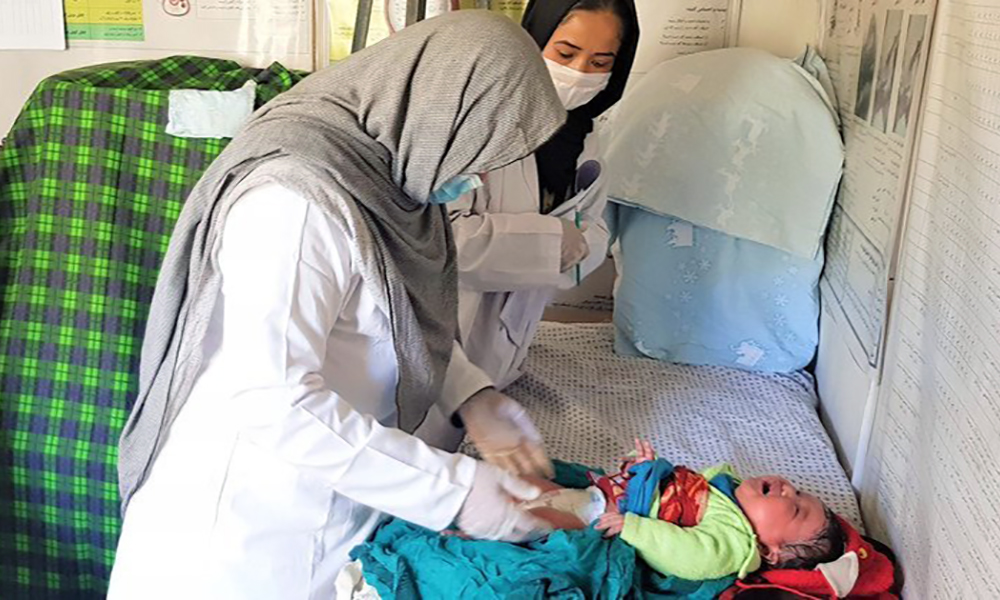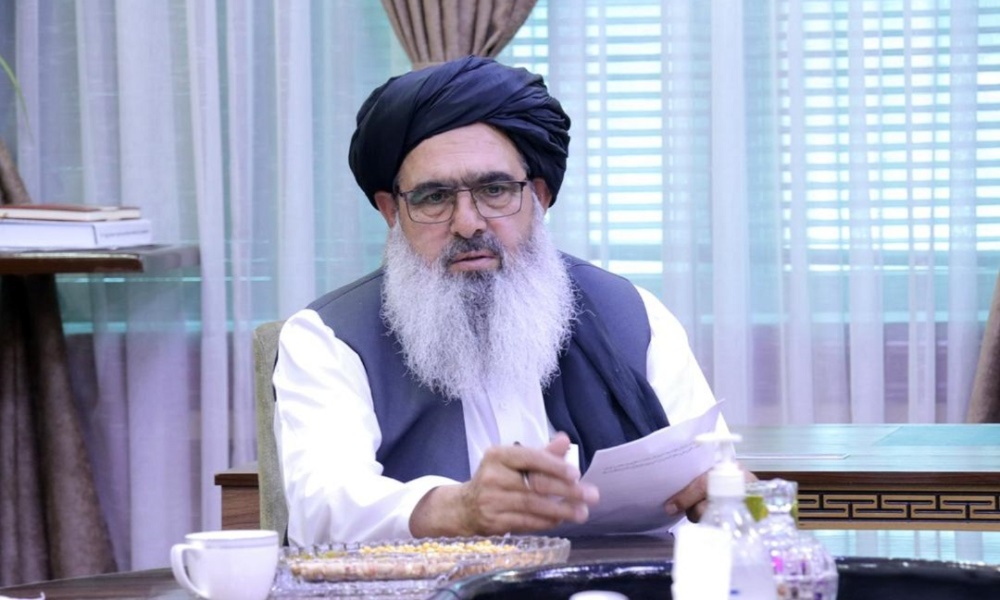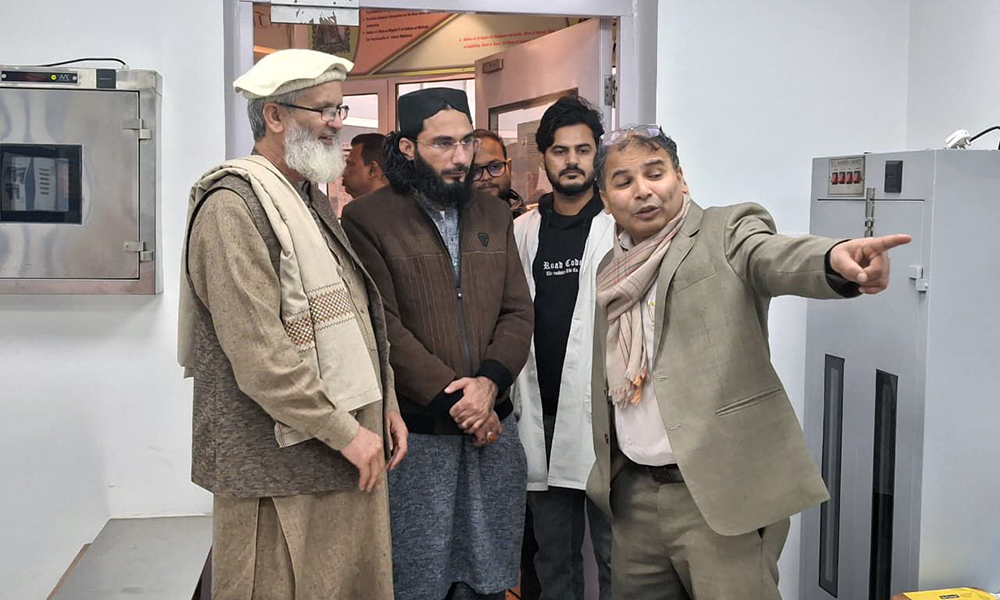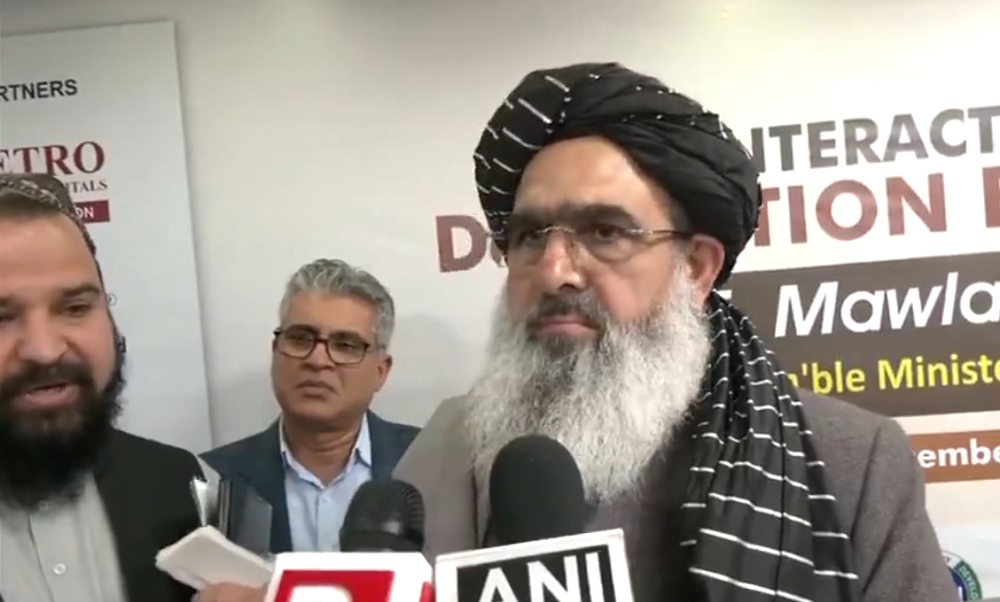Health
Afghanistan among 10 countries with highest maternal and infant mortality rates

Global progress in reducing deaths of pregnant women, mothers and babies has flatlined for eight years due to decreasing investments in maternal and newborn health, according to a new report from the United Nations (UN).
The report shows that over 4.5 million women and babies die every year during pregnancy, childbirth or the first weeks after birth – equivalent to 1 death happening every 7 seconds – mostly from preventable or treatable causes if proper care was available.
“Pregnant women and newborns continue to die at unacceptably high rates worldwide, and the COVID-19 pandemic has created further setbacks to providing them with the healthcare they need,” said Dr Anshu Banerjee, Director of Maternal, Newborn, Child and Adolescent Health and Ageing at the World Health Organization (WHO).
“If we wish to see different results, we must do things differently. More and smarter investments in primary healthcare are needed now so that every woman and baby – no matter where they live – has the best chance of health and survival.”
The report meanwhile ranked Afghanistan among the 10 countries with the highest number of deaths in 2020.
India had the most maternal deaths, stillbirths and newborn deaths globally, with 788,000. Afghanistan was ranked number nine, with 95,000 deaths.
Overall, the report shows that progress in improving survival has stagnated since 2015, with around 290,000 maternal deaths each year, 1.9 million stillbirths – babies who die after 28 weeks of pregnancy – and a staggering 2.3 million newborn deaths, which are deaths in the first month of life.
The report states that funding shortfalls and underinvestment in primary healthcare can devastate survival prospects. For instance, while prematurity is now the leading cause of all under-five deaths globally, less than a third of countries report having sufficient newborn care units to treat small and sick babies. Meanwhile, around two thirds of emergency childbirth facilities in sub-Saharan Africa are not considered fully functional – meaning they lack essential resources like medicines and supplies, water, electricity or staffing for 24-hour care.
In the worst-affected countries in Sub-Saharan Africa and Central and Southern Asia – the regions with the greatest burden of newborn and maternal deaths – fewer than 60% of women receive even four, of WHO’s recommended eight, antenatal checks.
“The death of any woman or young girl during pregnancy or childbirth is a serious violation of their human rights,” said Dr Julitta Onabanjo, Director of the Technical Division at the United Nations Population Fund (UNFPA).
To increase survival rates, women and babies must have quality, affordable healthcare before, during and after childbirth, the agencies say, as well as access to family planning services, the UN stated.
More skilled and motivated health workers, especially midwives, are needed, alongside essential medicines and supplies, safe water, and reliable electricity. The report stresses that interventions should especially target the poorest women and those in vulnerable situations who are most likely to miss out on lifesaving care – including through critical subnational planning and investments.
Health
Afghan health minister hails India’s support, calls medical visas vital for patients
Jalali said India is planning to build a 30-bed hospital in Kabul’s Bagrami district, which is expected to include an oncology center, a trauma unit, and maternal and child healthcare clinics.

Afghanistan’s Minister of Public Health, Noor Jalal Jalali, has praised India’s long-standing support for Afghanistan’s healthcare sector, describing Indian medical visas as a “vital humanitarian channel” for Afghan patients.
In an interview with an Indian television network, during his official visit to New Delhi, Jalali said Afghans have long relied on India for medical treatment, noting that the facilitation of medical visas has enabled thousands of patients to access advanced healthcare services in recent years.
He welcomed India’s contributions to Afghanistan’s health infrastructure, highlighting the Indira Gandhi Institute of Child Health in Kabul as one of the country’s most important pediatric hospitals.
India has supported the facility through the establishment of a thalassemia center, a modern diagnostic unit, upgrades to heating systems, and plans to provide a CT scan machine.
Jalali said India is also planning to build a 30-bed hospital in Kabul’s Bagrami district, which is expected to include an oncology center, a trauma unit, and maternal and child healthcare clinics.
He added that India has fitted around 75 Afghan patients with prosthetic limbs under the Jaipur Foot program and donated 20 ambulances.
During talks with India’s Minister of Health and Family Welfare, Jalali called for expanded cooperation in medical equipment, pharmaceutical regulation, training of healthcare workers, and the supply of essential medicines, particularly cancer drugs. He said India has pledged to provide these medicines on an urgent basis.
The Afghan health minister stressed the importance of capacity building, including training Afghan doctors in India and deploying Indian medical teams to Afghanistan.
He also said agreements have been reached to cooperate in traditional medicine, including Ayurveda and Unani practices, with plans to establish a Traditional Medicine Institute and Research Center in Afghanistan.
Jalali noted that Afghanistan has diversified its pharmaceutical import routes to ensure a steady supply of medicines and address concerns over counterfeit and substandard drugs through stronger regulation.
He described Afghanistan–India relations as people-centric and rooted in humanitarian values, expressing hope that cooperation in healthcare, pharmaceuticals, and medical infrastructure will continue to deepen.
Health
Afghan health officials visit Indian medical institute to expand ties
India has historically been a key partner in Afghanistan’s health and education sectors, providing training, medical support and institutional cooperation.

During an official visit to India, a technical delegation from Afghanistan’s Ministry of Public Health visited the Hamdard Institute of Medical Sciences and Research (HIMSR) in New Delhi, as part of efforts to strengthen cooperation in the health sector, particularly in the field of traditional medicine.
Officials and senior professors at HIMSR welcomed the Afghan team and provided detailed briefings on the institution’s academic programmes, research activities and medical services.
Discussions focused on opportunities for closer collaboration in traditional and integrative medicine, an area where Hamdard has long-standing expertise and international recognition.
HIMSR’s leadership expressed readiness to work with Afghan health authorities on joint research initiatives, quality testing and standardisation of traditional medicines through Hamdard’s laboratories, as well as knowledge-sharing programmes. The institution also pledged to offer scholarships and specialised training opportunities for Afghan doctors and medical professionals.
The visit comes as Afghanistan seeks to rebuild and strengthen its public health system amid ongoing economic and humanitarian challenges, with an emphasis on cost-effective and culturally accepted healthcare approaches such as traditional medicine.
India has historically been a key partner in Afghanistan’s health and education sectors, providing training, medical support and institutional cooperation.
Both sides said enhanced collaboration would contribute to improving public health outcomes, standardising traditional medicine practices, and expanding scientific and medical institutions in Afghanistan.
They reaffirmed their commitment to developing the partnership in a sustainable manner, aimed at long-term capacity building and mutual benefit.
Health
Amid strained Pakistan ties, Afghanistan turns to India for health cooperation

Afghanistan’s Minister of Public Health, Noor Jalal Jalali, has said that Afghanistan is looking to strengthen health-sector cooperation with India, as relations with Pakistan have cooled and the country seeks alternative partners to meet its medical needs.
Speaking during his visit to India, Jalali said his primary focus is combating disease and improving public health, stressing that he is ready to seek assistance and cooperation from any country willing to help Afghanistan in this regard.
“My enemy is disease,” Jalali told reporters. “I will shoot at it from anywhere it is possible.”
He said the purpose of his visit is to open a new chapter of cooperation between Afghanistan and India.
Jalali noted that a significant portion of Afghanistan’s medicine requirements had previously been met by Pakistan. However, amid strained relations with Islamabad, the Islamic Emirate is now exploring alternative options to ensure the steady supply of essential medicines. He added that India could serve as a key partner.
-

 Latest News2 days ago
Latest News2 days agoAfghanistan signs 30-year deal for marble mining in Daikundi
-

 Latest News4 days ago
Latest News4 days agoAfghan border forces prevent illegal entry of hundreds into Iran
-

 Latest News3 days ago
Latest News3 days agoPakistan summons Afghan diplomat over deadly attack in North Waziristan
-

 Latest News3 days ago
Latest News3 days agoAfghan health minister calls for medical cooperation between Kabul and New Delhi
-

 Latest News4 days ago
Latest News4 days agoJapan allocates nearly $20 million in humanitarian aid for Afghanistan
-

 Latest News3 days ago
Latest News3 days agoKarzai urges reopening of girls’ schools and universities for Afghanistan’s bright future
-

 Latest News2 days ago
Latest News2 days agoBush Institute criticizes Trump administration’s Afghan immigration freeze
-

 Health4 days ago
Health4 days agoIndia issues over 200 medical visas to Afghans in last four months
























